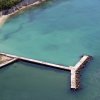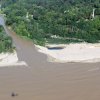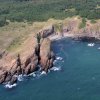Center for Coastal & Marine Studies
Systematic, connected: building the future of Europe’s marine protection
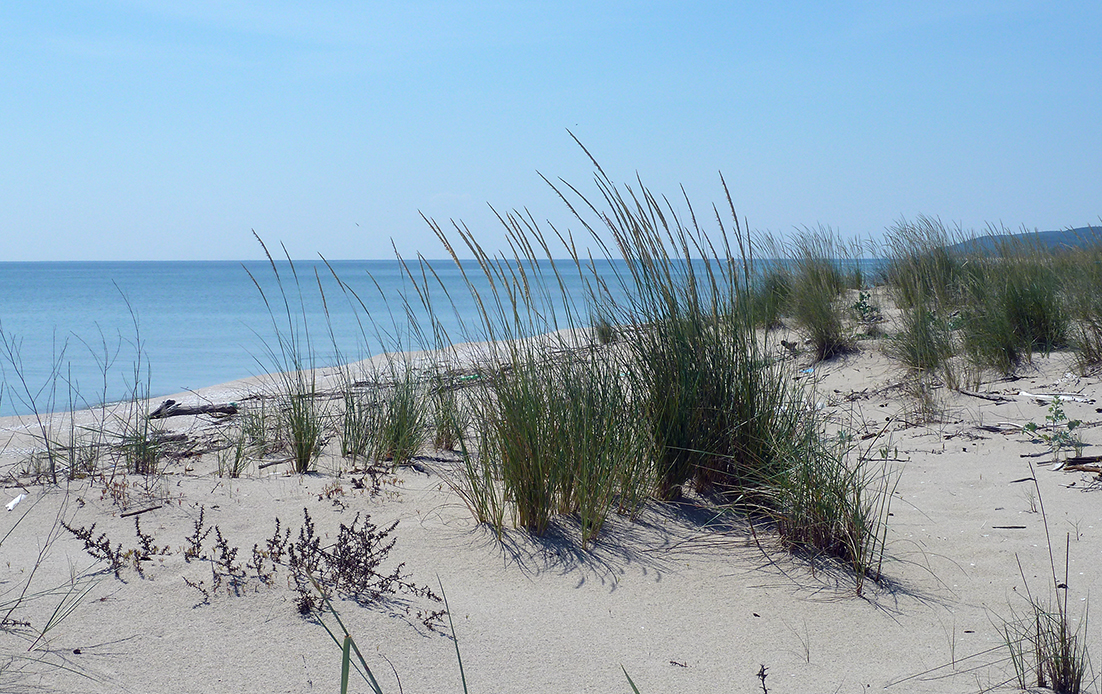
BLUE CONNECT is creating a blueprint to guide science-based protection, co-management and monitoring of Europe’s seas
Europe has set ambitious targets for protecting its marine environment, but progress reveals a significant gap. Only 13.7% of EU seas are protected, and just 0.03% are strictly protected – far below the EU Biodiversity Strategy’s 2030 goals of 30% and 10%, respectively. Meeting these targets requires not only designating new Marine Protected Areas (MPAs) but also strengthening existing ones and ensuring they form an effective, connected network.
BLUE CONNECT, a Horizon Europe Mission Ocean project, supports Europe in closing this gap. It promotes a comprehensive, science-driven and inclusive approach to expanding existing or designating new MPAs, shifting to strict protection, enhancing ecological connectivity, and facilitating co-management with local stakeholders. The project aligns with Mission Ocean and Waters objectives, providing Europe with tools to meet its 2030 protection and restoration commitments.
A science-driven blueprint
BLUE CONNECT aims to develop and implement a systematic approach to effective marine conservation. Central to this approach is a holistic modelling framework that considers biodiversity, ecological functioning, ecosystem services and connectivity aspects as well as socio-economic and cultural interests.
BLUE CONNECT joined the #30DayMapChallenge with a Burgas Bay (Black Sea)-themed map
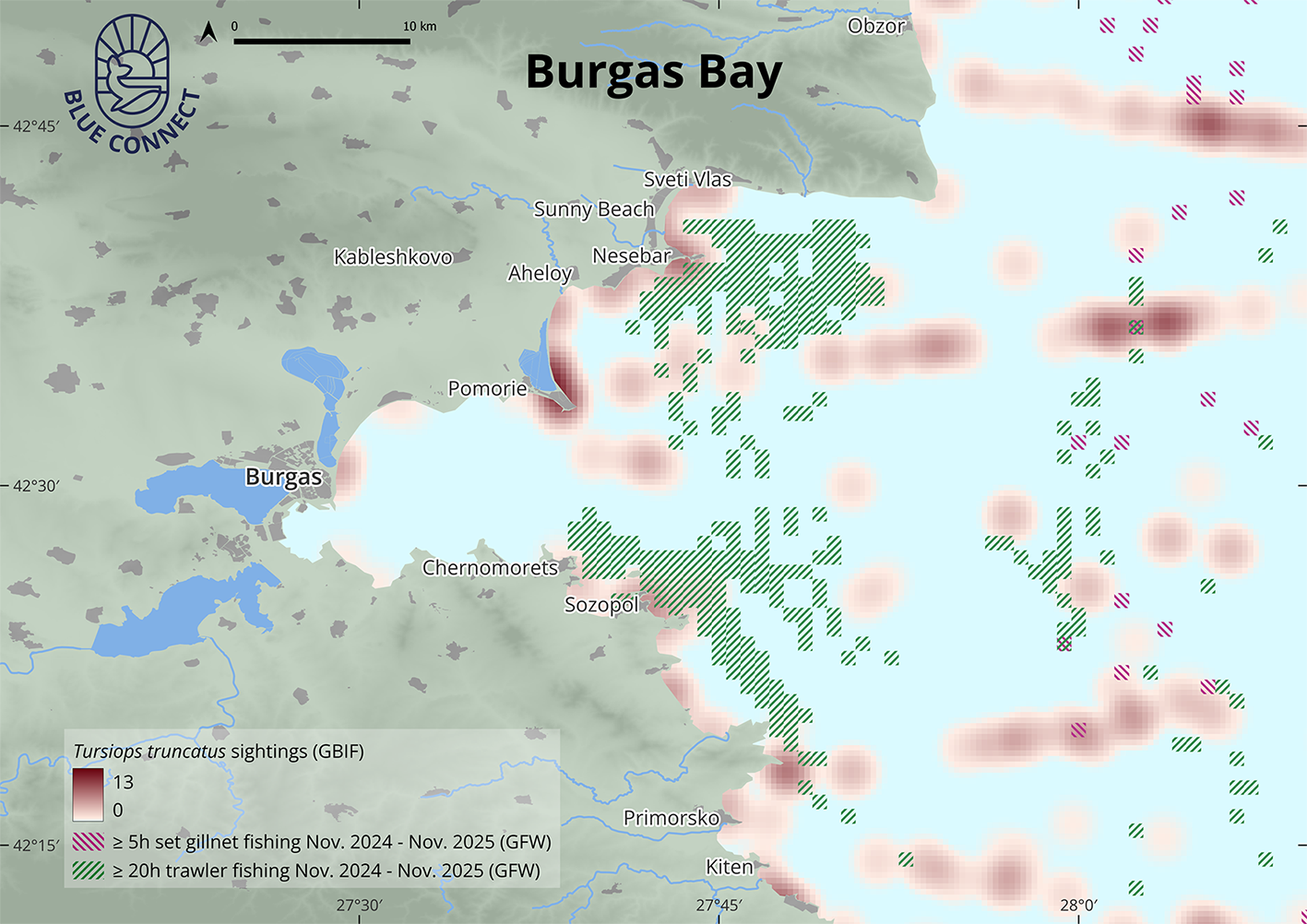
As part of this year’s #30DayMapChallenge, the BLUE CONNECT Project has highlighted one of its 12 Demonstration Sites - Burgas Bay, Black Sea and its marine biodiversity with a new map demonstrating the spatial overlap between fishing activities and the Black Sea bottlenose dolphins (Tursiops Truncatus) in the Bulgarian sea waters. The 30 day map challenge is a yearly event each November in which participants aim to make a different map every day according to a set of themes and share them on social media with the hashtag #30DayMapChallenge.
Created by our colleague Lawrence Whatley from VLIZ, the map visualises areas where trawling and set gillnet fishing – identified as key pressures – intersect with recorded sightings of bottlenose dolphins. In Burgas Bay, marine mammals including the Black Sea bottlenose dolphin (Tursiops Truncatus) have been identified as important ecological subjects, and fishing, particularly trawling and gillnet fishing, as a significant pressure. By overlaying data from GBIF: The Global Biodiversity Information Facility and Global Fishing Watch, the hot spot areas of impact are visualized to help inform conservation and restoration measures. The map shows sightings of bottlenose dolphins and areas where at least 5 hours of set gillnet fishing and/or 20 hours of trawling have happened in the last year.
ULTFARMS CAPITALISATION WORKSHOP: SCALING SUSTAINABLE OFFSHORE SOLUTIONS
The CCMS Director Dr. Margarita Stancheva was invited speaker at an interactive Blue Economy Roundtable of the ULTFARMS Capitalisation Workshop.

On 5th of November 2025, the Technological Corporation of Andalusia (CTA) in representation of the ULTFARMS project hosted the Capitalisation Workshop, which aimed to advance low-trophic aquaculture development in offshore wind farms and accelerate its commercial deployment. The workshop brought together stakeholders from across the blue economy, research, and investment sectors and included interactive online sessions designed to accelerate the transfer and scaling of innovative solutions for offshore multi-use farming.
The workshop opened with an introduction to its objectives and expected outcomes, followed by a showcasing of the project pilots, highlighting innovative approaches, key achievements, and lessons learned across different European contexts. The following dedicated Capitalisation Session served as a platform to identify synergies, share cross-pilot insights, and address common challenges, while exploring how innovative solutions can be adapted and transferred across regions and sectors.
The event culminated in a Blue Economy Roundtable, bringing together pilot leaders, researchers and investors to explore opportunities and risks, creative financing mechanisms, and pathways to scale promising multi-use offshore solutions.
THE #7 ISSUE OF THE BLUE HORIZONS MPA NEWSLETTER IS READY TO READ!
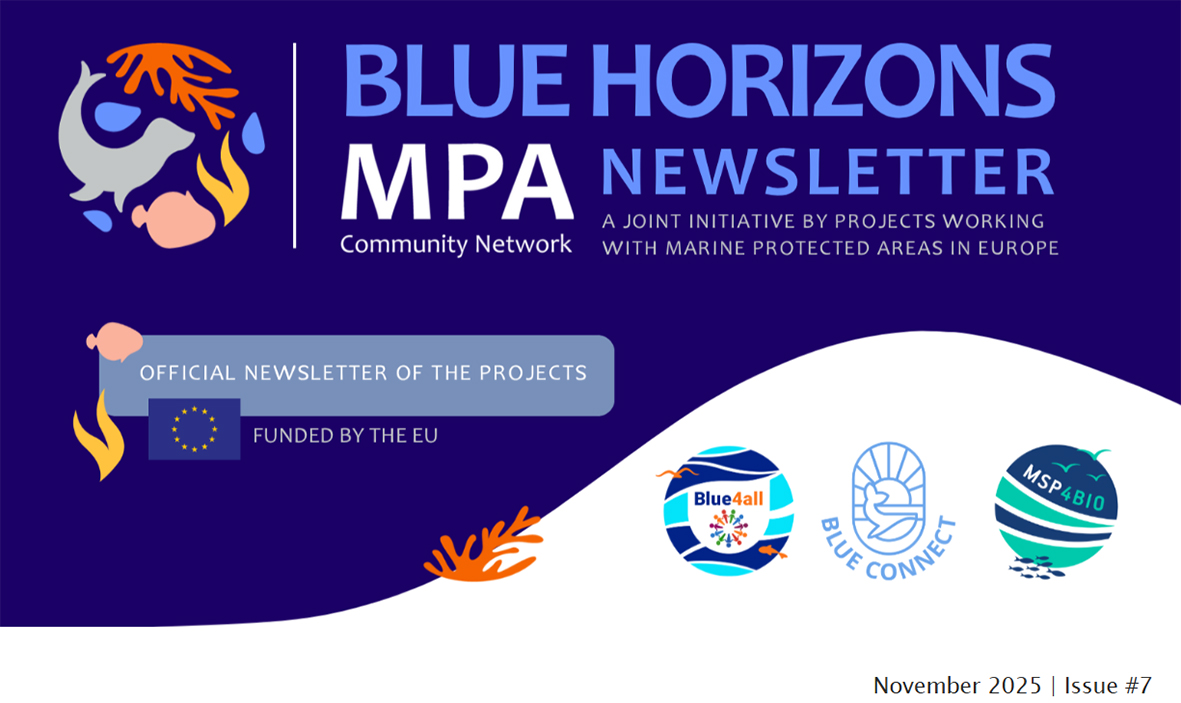
We’re thrilled to bring you a wave of exciting updates from across our marine conservation and MSP initiatives!
We are excited to share that the MPA Community Network has grown to 12 members, a big milestone for a community that only launched earlier this year.
Highlights for the MPA-CN over the last months:
- We were represented at the Danish EU Presidency's Mission Ocean & Waters Conference on 23–24 September and received a lot of interest in our work.
- The MPA Card Game is flying through test rounds has been brought to several events by our members. In June, it even went aboard the METEOR research vessel as one of the UNOC 2025 side events! You can download it on the website.
- We were also featured by the European Commission last week, alongside our founding member BLUE4ALL. We were thrilled to be highlighted amongst the 100 other members of the EU Blue Parks Community! Read more about it here, and be sure to join the 5th EU Blue Parks webinar on 19th Nov – details in the events section.
























